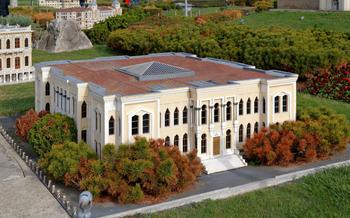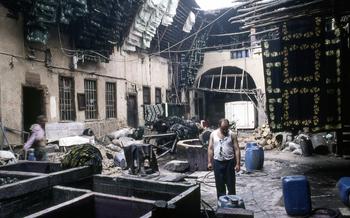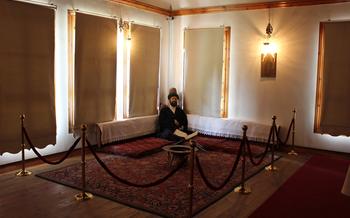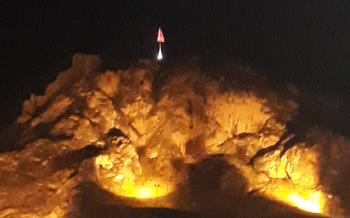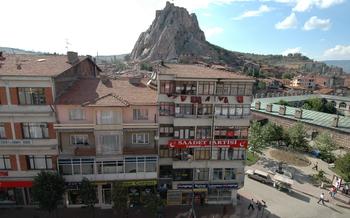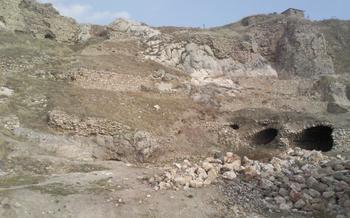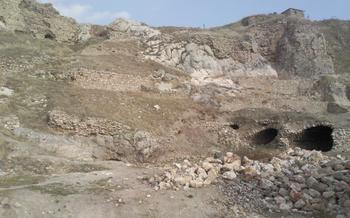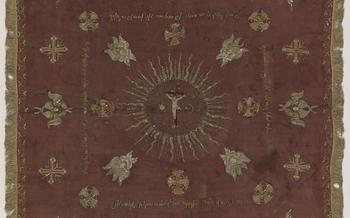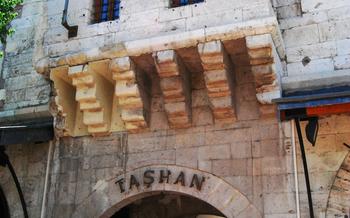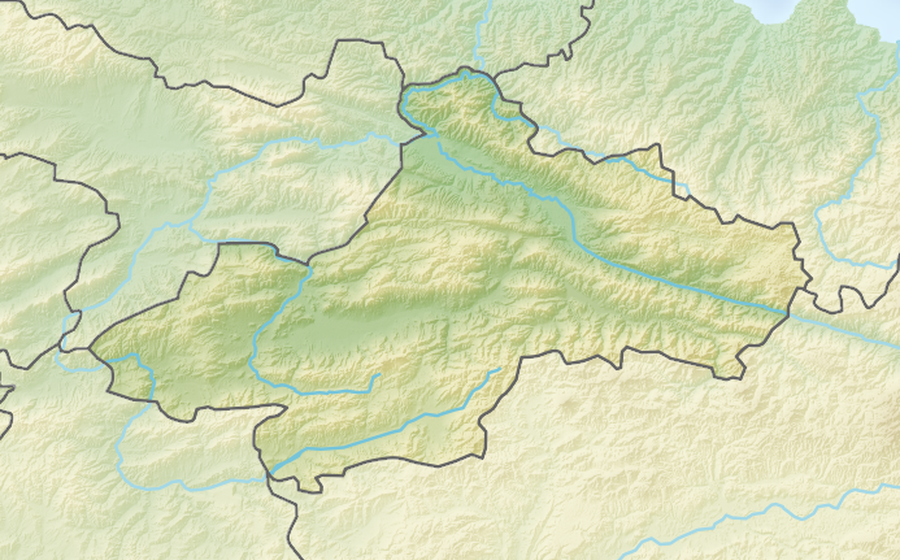
Zile Public Bath
- Historical Significance
- Architectural Features
- Cultural Significance
- Restoration and Preservation: Breathing New Life into History
- Health and Wellness Benefits
- Local Artisans and Crafts
- Local Cuisine and Delicacies
- Nearby Attractions and Activities
- Accommodation and Lodging Options
- Transportation and Getting Around
- Budget and Cost Considerations
- Safety and Security
- Insider Tip: Unveiling Tokat's Hidden Gem - The Sulusaray Mansion
Historical Significance
The Zile Public Bath, a historical gem nestled in the heart of Tokat, Turkey, stands as a testament to the region's rich history and cultural heritage. Built in the 16th century during the Ottoman Empire, the bathhouse has served as a hub for social interaction, relaxation, and purification for centuries. Its unique architectural features and design elements, such as the impressive dome and intricate tilework, reflect the artistry and craftsmanship of the era. Beyond its architectural significance, the bathhouse holds a special place in the local community, having witnessed countless stories, traditions, and rituals unfold within its walls. It is said that renowned historical figures, including Ottoman sultans and travelers, have graced the bathhouse with their presence, adding to its allure and mystique.
Architectural Features
The Zile Public Bath is a remarkable example of Ottoman architecture. Its most striking feature is the impressive dome, which rises majestically above the bathhouse. The dome is adorned with intricate tilework, featuring geometric patterns and vibrant colors that create a mesmerizing visual display. The tiles were painstakingly hand-painted by skilled artisans, and their artistry has stood the test of time.
The bathhouse is divided into several sections, each serving a specific purpose. The changing rooms, located at the entrance, provide a private space for bathers to undress and prepare for their bathing experience. The hot and cold pools, situated in separate chambers, allow bathers to immerse themselves in water of different temperatures, promoting relaxation and rejuvenation. Massage areas, equipped with traditional massage tables, offer a range of massage services, enabling bathers to indulge in a truly therapeutic experience.
The design of the Zile Public Bath demonstrates a deep understanding of natural light and ventilation. The strategically placed windows and skylights allow ample sunlight to flood the interior, creating a bright and inviting atmosphere. The clever use of ventilation systems ensures a constant flow of fresh air, preventing the bathhouse from becoming stuffy or humid.
Among the unique architectural elements that set the Zile Public Bath apart is its intricate plumbing system. The bathhouse was equipped with a sophisticated network of pipes and channels that supplied water to the different sections and facilitated the drainage of wastewater. This system, which was considered advanced for its time, testifies to the ingenuity and engineering prowess of the Ottoman builders.
Cultural Significance
The Zile Public Bath is not just a historical landmark but also holds deep cultural significance in Tokat. It serves as a communal space where locals gather to socialize, relax, and cleanse themselves. Visiting the bathhouse is an integral part of Turkish culture and tradition, offering a unique opportunity to immerse oneself in the local way of life. The bathhouse has been a central part of the community for centuries, providing a place for people to come together, socialize, and relax.
Traditional bathing rituals and customs are still practiced in the Zile Public Bath, offering visitors a glimpse into the rich cultural heritage of Tokat. The process begins with undressing in the changing rooms, followed by a thorough wash in the hot and cold pools. Visitors can then indulge in a relaxing massage, which is believed to have therapeutic benefits and promote overall well-being. These rituals are not just about cleanliness but also about connecting with others and fostering a sense of community.
The Zile Public Bath is also a venue for various cultural events and festivals throughout the year. These events celebrate Turkish culture and traditions and offer visitors a chance to experience the vibrant spirit of Tokat. From traditional music performances to henna painting sessions, there is always something special happening at the bathhouse, making it a hub of cultural activity.
Restoration and Preservation: Breathing New Life into History
The Zile Public Bath has undergone a remarkable journey of restoration and preservation, a testament to the community's dedication to preserving its cultural heritage. In the early 20th century, the bathhouse fell into disuse and neglect, its once-vibrant chambers echoing with silence. However, in the 1980s, a group of passionate local historians and architects spearheaded a movement to restore the bathhouse to its former glory.
The restoration process was a meticulous and challenging endeavor. Craftsmen and artisans painstakingly repaired the intricate tilework, rebuilt the collapsed sections, and restored the original architectural features. The restoration team faced numerous challenges, including sourcing authentic materials and techniques, and ensuring that the bathhouse remained faithful to its original design.
Their efforts were rewarded when the Zile Public Bath was reopened to the public in 1995, once again welcoming visitors to experience the tranquility and rejuvenation that it had offered for centuries. The restoration of the bathhouse has not only preserved a valuable piece of Turkish history but has also transformed it into a thriving cultural center and a source of pride for the local community.
In recognition of its exceptional restoration efforts, the Zile Public Bath received the prestigious Europa Nostra Award in 200This prestigious award celebrates cultural heritage conservation projects across Europe and serves as a testament to the bathhouse's significance as a cultural landmark.
Health and Wellness Benefits
The Zile Public Bath is not just a historical and cultural landmark; it also offers a range of health and wellness benefits. The combination of hot and cold water immersion, massage, and exfoliation provides a rejuvenating and therapeutic experience.
The hot water pools help to relax muscles, improve circulation, and relieve pain and stiffness. The cold water pools, on the other hand, help to constrict blood vessels, reduce inflammation, and boost the immune system. The contrast between the hot and cold water stimulates the body's natural healing processes, promoting overall well-being.
In addition, the massage services offered at the bathhouse help to relieve stress, improve flexibility, and promote deep relaxation. The masseurs are skilled in a variety of techniques, including traditional Turkish massage, which incorporates elements of stretching, kneading, and tapping.
The exfoliating treatments, using traditional kese cloths, remove dead skin cells, leaving the skin feeling soft, smooth, and revitalized. This process also helps to improve circulation and lymphatic drainage, promoting detoxification and overall health.
Overall, a visit to the Zile Public Bath is a unique and immersive experience that combines history, culture, and wellness. It is a place where visitors can relax, rejuvenate, and restore their physical and mental well-being.
Local Artisans and Crafts
The Zile Public Bath is not just a place for bathing and relaxation; it is also a hub for local artisans and craftspeople who contribute to the unique atmosphere of the bathhouse. Traditional crafts such as copperware, pottery, and weaving are still practiced in the area, and visitors can observe the artisans at work and purchase their handmade creations. The copper bowls, jugs, and trays used in the bathhouse are often made by local coppersmiths, who use traditional techniques to create beautiful and functional objects. Visitors can also find handmade pottery, such as bowls, plates, and decorative tiles, that are made using local clay and traditional firing methods. The bathhouse also showcases the work of local weavers, who create intricate rugs, towels, and other textiles using traditional looms and natural dyes. Supporting local artisans and preserving traditional skills is essential for maintaining the cultural heritage of Tokat and ensuring that these crafts continue to thrive for future generations.
Local Cuisine and Delicacies
Tokat, and the Tokat Zile district, is renowned for its rich culinary heritage, offering a tantalizing array of flavors and culinary delights. Visitors to the city can indulge in a symphony of tastes that are sure to leave their palates dancing with joy.
One of the must-try dishes in Tokat is the legendary keşkek, a hearty and wholesome dish made from pounded wheat, chicken, and spices. This delectable dish is a true testament to the region's culinary prowess and is guaranteed to satisfy even the most discerning foodie.
For those seeking a taste of the local street food scene, Tokat offers an array of tempting options. From savory börek, filled with cheese, meat, or vegetables, to crispy gözleme, a flatbread stuffed with various fillings, there is something to satisfy every craving.
No culinary journey in Tokat is complete without sampling the city's renowned böğürtlenli cevizli sucuk, a unique confection made from blackberries, walnuts, and grape molasses. This sweet treat is a true delight for the senses and is a must-try for anyone with a sweet tooth.
To fully immerse oneself in Tokat's culinary culture, visitors should venture into the city's vibrant local markets, where they can browse an array of fresh produce, spices, and traditional delicacies. These markets are a treasure trove of culinary delights and offer a glimpse into the daily lives of the locals.
Whether it's savoring the hearty flavors of keşkek, indulging in the street food delights, or sampling the sweet temptations of böğürtlenli cevizli sucuk, Tokat promises a culinary adventure that will leave visitors craving for more.
Nearby Attractions and Activities
Tokat and its surroundings offer a diverse range of attractions and activities for visitors to explore. History buffs can marvel at the ancient ruins of the Tokat Castle, which dates back to the Roman period and offers breathtaking panoramic views of the city. Nature enthusiasts can venture into the lush forests of the Tokat-Reşadiye National Park, where they can hike, camp, and spot wildlife such as bears, wolves, and eagles. The Sulusaray Waterfall, located in the town of Zile, is a stunning natural wonder that cascades down a rocky cliff, creating a mesmerizing spectacle.
For those interested in culture and art, the Tokat Museum houses a collection of artifacts and exhibits that showcase the city's rich history and heritage. The Tokat Crafts Center is a hub for local artisans and craftspeople, where visitors can witness traditional techniques and purchase handmade souvenirs. The city also hosts several annual festivals and events, such as the Tokat International Puppet Festival and the Tokat International Music Festival, which offer a vibrant and festive atmosphere.
Day trips from Tokat can lead to the discovery of hidden gems in the region. The nearby town of Niksar boasts the Niksar Castle, an impressive Byzantine fortress with stunning views, and the Niksar Ulu Mosque, a beautiful example of Seljuk architecture. The town of Reşadiye is known for its thermal springs, which are believed to have therapeutic properties. Tokat offers an ideal base for exploring the natural and cultural treasures of the surrounding area, promising a memorable and enriching travel experience.
Accommodation and Lodging Options
Tokat offers a diverse range of accommodation options to suit every budget and preference. From budget guesthouses to luxurious hotels, visitors can find a place to stay that meets their needs and desires.
For those seeking a budget-friendly option, there are several guesthouses and hostels located in the city center. These accommodations provide basic amenities and a comfortable stay at an affordable price. Some popular budget options include the Tokat Hostel, the Grand Hostel, and the Tokat Guesthouse.
For a more comfortable and luxurious experience, visitors can choose from a variety of mid-range and high-end hotels. These hotels offer a range of amenities, including private bathrooms, air conditioning, and room service. Some popular mid-range hotels include the Hotel Tokat, the Divan Tokat, and the Wyndham Grand Tokat.
For those seeking a truly unique and authentic experience, there are several boutique hotels and traditional guesthouses located in the historic district of Tokat. These accommodations often feature traditional Turkish architecture and décor, allowing guests to immerse themselves in the local culture.
When choosing accommodation in Tokat, it is important to consider the location. The city center is a popular area for tourists, as it is home to many of the city's historical sites and attractions. However, if you are looking for a quieter and more peaceful experience, you may want to consider staying in one of the city's quieter neighborhoods.
No matter what your budget or preferences, you are sure to find a comfortable and welcoming place to stay in Tokat.
Transportation and Getting Around
Tokat is a well-connected city with several transportation options available for getting around. The most convenient way to explore the city is on foot, as many of the main attractions are located within the city center. For longer distances, visitors can use the local public transportation system, which includes buses and minibuses. The buses are reliable and affordable, with routes covering most parts of the city. Taxis are also readily available and offer a comfortable and convenient way to get around. Rental cars are another option, but it's important to note that traffic can be congested during peak hours. If you're planning to explore the surrounding areas, renting a car might be the best option for flexibility and convenience.
Budget and Cost Considerations
Tokat offers a range of accommodation options to suit different budgets. From budget-friendly guesthouses to comfortable mid-range hotels, there are plenty of options to choose from. For a more luxurious experience, there are several high-end hotels that offer a range of amenities and services.
Food costs in Tokat are generally affordable. Local restaurants and eateries offer delicious meals at reasonable prices. Visitors can enjoy a variety of traditional Turkish dishes, as well as international cuisine. Street food is also a popular and budget-friendly option, with vendors selling everything from kebabs to gözleme (stuffed flatbread).
Transportation costs are relatively low in Tokat. The local transportation system is efficient and affordable, with buses and minibuses connecting different parts of the city. Taxis are also readily available and offer a convenient way to get around. For those who prefer to explore the city at their own pace, rental cars are available at reasonable rates.
To save money, visitors can take advantage of the many free activities and attractions that Tokat has to offer. Exploring the city's historic sites, such as the Zile Public Bath and the Tokat Castle, is free of charge. Visitors can also enjoy the city's parks and gardens, which offer beautiful scenery and a chance to relax and unwind.
Safety and Security
Tokat is generally a safe and welcoming city for travelers. The crime rate is low, and the local community is known for its hospitality. However, as with any travel destination, it is essential to take basic safety precautions to ensure a smooth and enjoyable trip.
- Be aware of your surroundings: Stay alert and pay attention to your surroundings, especially in crowded areas or at night.
- Keep your valuables safe: Keep your money, passport, and other valuables in a secure place, such as a hotel safe or a money belt.
- Avoid walking alone at night: If you need to go out at night, consider taking a taxi or walking in well-lit areas.
- Be respectful of local customs: Dress modestly and behave respectfully to avoid any misunderstandings or offense.
- Learn a few basic Turkish phrases: Learning a few essential Turkish phrases can help you communicate with locals and avoid any language barriers.
- Trust your instincts: If a situation feels unsafe, trust your instincts and remove yourself from it.
In case of an emergency, dial 112 to reach the police, fire department, or ambulance. English-speaking assistance may not be readily available, so it is helpful to have a Turkish-speaking friend or guide with you.
Insider Tip: Unveiling Tokat's Hidden Gem - The Sulusaray Mansion
Beyond the Zile Public Bath, Tokat holds another architectural marvel that often goes unnoticed by tourists. Nestled in the heart of the city, the Sulusaray Mansion stands as a testament to the region's rich history and craftsmanship. Built in the 19th century, this hidden gem boasts intricate woodwork, stunning stained-glass windows, and a serene courtyard that transports visitors back in time.
While the mansion is privately owned and not open to the public, its exterior beauty and historical significance make it a must-see for architecture enthusiasts. Take a stroll along the cobblestone streets and admire the mansion's elegant facade, adorned with intricate carvings and colorful tiles. Imagine the stories that these walls could tell, of lavish parties, influential guests, and the grandeur of a bygone era.
For those seeking a truly immersive experience, inquire about the possibility of arranging a private tour through the Tokat Municipality. With a bit of luck and perseverance, you may be granted access to the mansion's opulent interior, where you can marvel at its well-preserved frescoes, ornate furnishings, and the grandeur that once defined Tokat's elite society.

